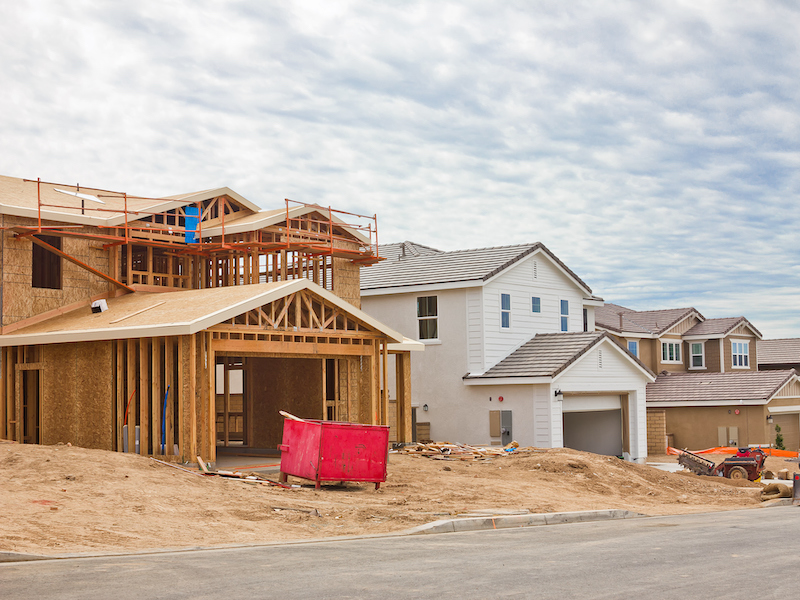
The pace of home construction rose in February as builders started on more apartments and condos, but the industry continues to struggle under cost pressures.
Canada Mortgage and Housing Corp. said Friday that housing starts jumped 14% to 253,468 in February from a month earlier on a seasonally adjusted annual rate, which allows for better month-to-month comparison.
When looking at year-over-year figures, February’s housing starts were up 11%, with the increase driven entirely by higher multi-unit starts that increased 16%, while single-detached starts were down 14%.
“As the national housing shortage continues, the focus for developers continues to shift towards multi-unit construction in Canada’s major centres,” said Bob Dugan, CMHC’s chief economist, in the release.
Month-to-month starts can fluctuate significantly as the launch of larger multi-unit developments can skew numbers. Adjusted starts in February were up 79% in Vancouver and down 31% in Montreal.
To smooth out those swings and give a clearer picture of the upcoming housing supply trend, CMHC also reports a six-month moving average of the adjusted rate. In February, the indicator showed starts at 245,665, up by 0.4% from January.
The pace falls short of the more than 277,000 starts Canada was seeing on a six-month trend in late 2022, before rising interest rates hit borrowing costs and created recession concerns.
CMHC and analysts have been expecting slower housing starts this year, as more difficult borrowing conditions and labour shortages affect the pace of building.
Starts in the first quarter are expected to decrease from the fourth quarter last year, said TD economist Rishi Sondhi in a note.
“In the first two months of Q1, housing starts are below their fourth quarter level, suggesting some potential downward pressure on residential investment growth in the first quarter,” he said. “We think they’ll head lower as the year progresses, with past weakness in home sales filtering through into home building.”
The uptick in February may be linked in part to weather, said CIBC analyst Katherine Judge.
“Some of the increase is likely being helped by the atypically mild winter weather seen this year, which could also be supporting activity in the resale market.”
Expectations for rate cuts later this year are also helping drive the resale market, which on an economy-wide basis, could help make up for a slowdown in building, she said.
“Homebuilding is still likely to show a modest retreat in Q1 overall, but the drag on GDP growth from residential investment will be limited by the increase in resale activity.”